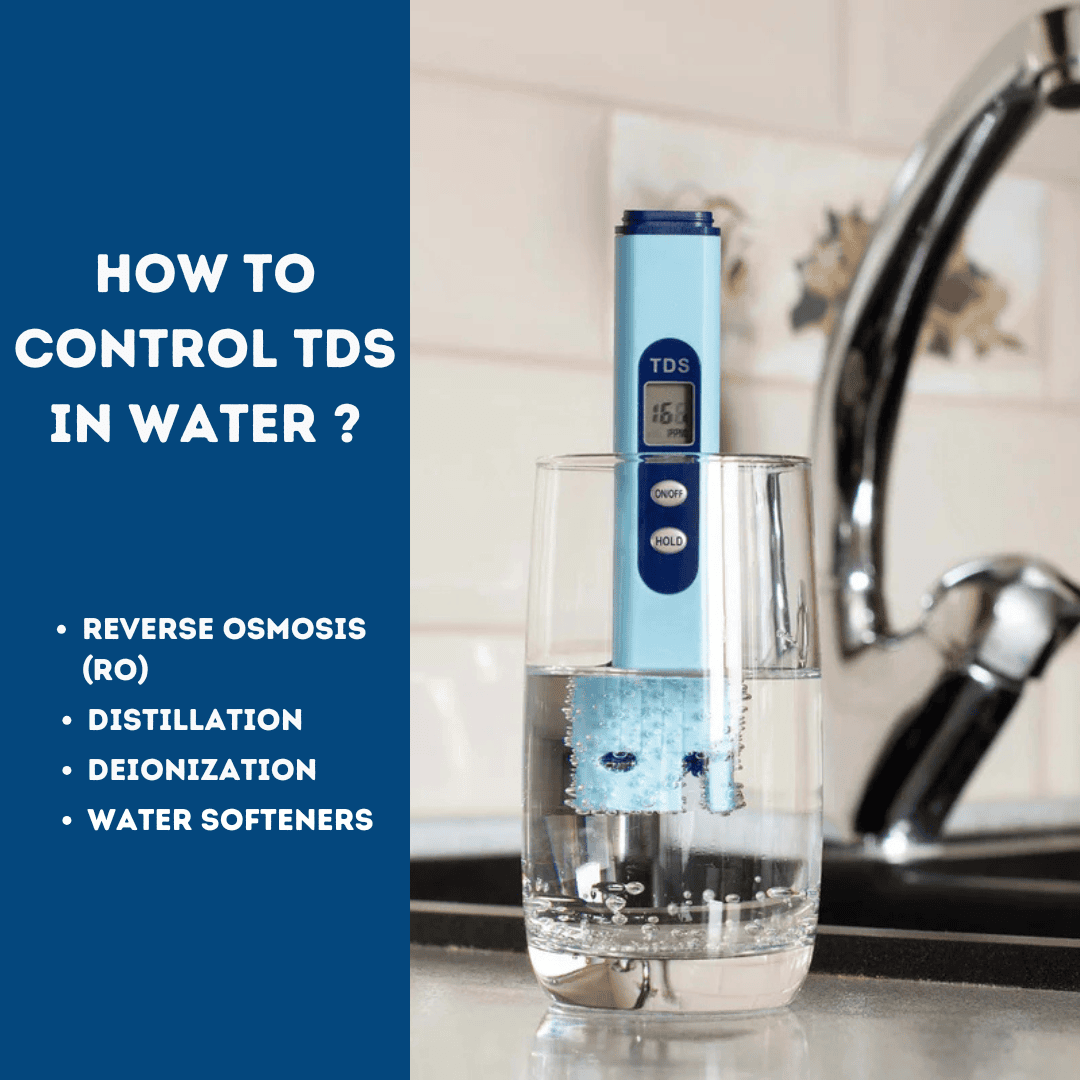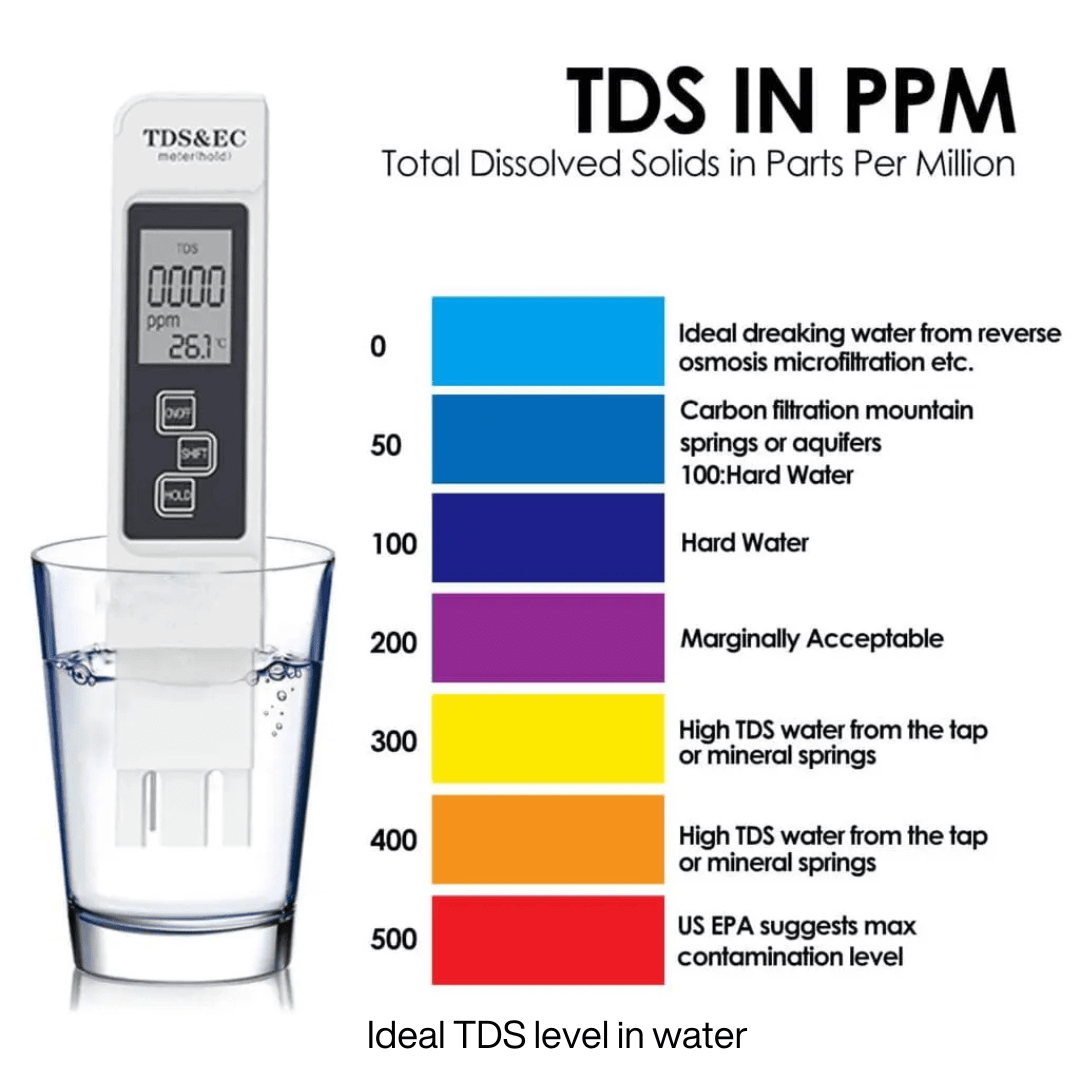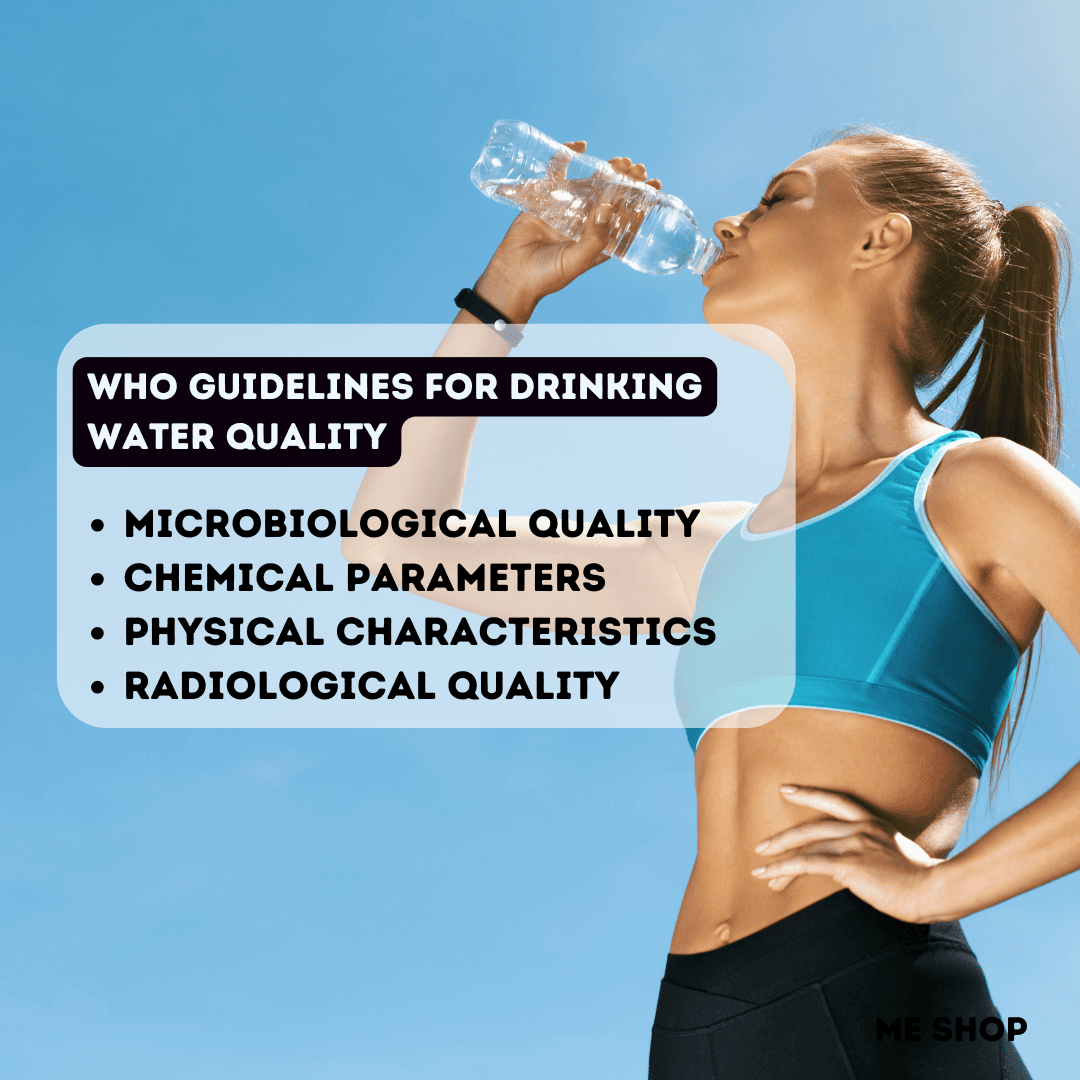Overview of Total Dissolved Solids (TDS)
What is TDS?
TDS refers to the amount of inorganic and organic substances dissolved in water. These substances include minerals, salts, metals, and other impurities. While some minerals are beneficial, excessive TDS can negatively affect the taste, odor, and overall quality of water, potentially posing health risks.
Why is TDS Important?
TDS levels play a crucial role in determining the suitability of water for various purposes. Here's why it's important:
- Taste and Odor: High TDS can make water taste salty, bitter, or metallic, making it unpleasant to drink.
- Health Effects: Excessive TDS can contribute to health issues like kidney stones, gastrointestinal problems, and cardiovascular diseases.
- Aesthetic Concerns: High TDS can cause scaling in pipes and appliances, reducing their efficiency and lifespan.
- Agricultural Impact: Elevated TDS can hinder plant growth and affect soil quality.

How to Control TDS in Water
How to Control TDS in Water
Controlling TDS levels is essential for ensuring safe and palatable drinking water. Here are some effective methods:
- Reverse Osmosis (RO): RO systems are highly effective in removing a wide range of dissolved solids, making them a popular choice for TDS reduction.
- Distillation: This process involves boiling water and collecting the condensed steam, leaving behind dissolved impurities.
- Deionization: Deionization uses ion exchange resins to remove mineral ions from water, effectively reducing TDS.
- Water Softeners: While primarily used to reduce hardness, water softeners can also help lower TDS levels.

Drinking Water TDS: What's the Ideal Range?
Drinking Water TDS: What's the Ideal Range?
The ideal TDS level for drinking water depends on various factors, including individual preferences and health conditions. However, here are some general guidelines:
- WHO Recommendations: The World Health Organization (WHO) recommends a TDS level below 300 ppm (parts per million) for palatable drinking water.
- Optimal Range: Many experts consider a TDS range between 50-150 ppm to be ideal, providing a balance of taste and mineral content.
- Acceptable Limit: TDS levels up to 500 ppm are generally considered acceptable for drinking, though higher levels may affect taste and require further treatment.
What Studies Say About TDS and Health
What Studies Say About TDS and Health

Numerous studies have investigated the relationship between TDS and health. Here are some key findings:
- Kidney Stones: High TDS, particularly calcium and magnesium salts, can contribute to the formation of kidney stones.
- Cardiovascular Health: Some studies suggest a link between high TDS and increased risk of cardiovascular diseases.
- Gastrointestinal Issues: Elevated TDS can cause gastrointestinal discomfort, including diarrhea and stomach cramps.
- Mineral Deficiency: While excessive TDS is a concern, extremely low TDS can also lead to mineral deficiencies.

WHO Guidelines for Drinking Water Quality
WHO Guidelines for Drinking Water Quality
The WHO has established comprehensive guidelines for drinking water quality, encompassing various parameters, including TDS. These guidelines aim to ensure safe and healthy drinking water for everyone.
- Microbiological Quality: Water should be free from harmful bacteria, viruses, and parasites.
- Chemical Parameters: Limits are set for various chemicals, including heavy metals, pesticides, and disinfection by-products.
- Physical Characteristics: Water should be clear, colorless, and odorless.
- Radiological Quality: Radioactive substances should be below safe limits.
.
ME SHOP INDIA: Your Partner in Water Purity
ME SHOP INDIA: Your Partner in Water Purity
At ME SHOP INDIA, we understand the importance of clean and healthy drinking water. We offer a wide range of water purification solutions, including RO systems, to help you achieve optimal TDS levels and ensure the purity of your water.
Our expert team can guide you in selecting the right water purifier based on your specific needs and water quality concerns.
Visit our website www.meshopindia.com today to explore our collection and find the perfect solution for your home.
Stay hydrated and healthy with ME SHOP INDIA!








